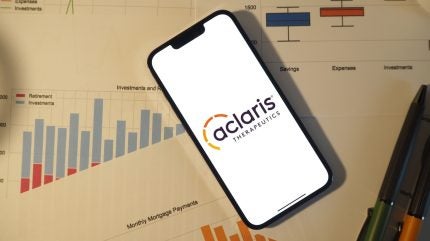
The US Food and Drug Administration (FDA) has approved an investigational new drug (IND) application from Aclaris Therapeutics, allowing the company to begin a placebo-controlled Phase Ia/Ib study of the ATI-052 antibody.
The upcoming blinded, randomised trial will explore both single and multiple ascending doses of the bispecific monoclonal antibody, which is being developed for certain immuno-inflammatory conditions.

Discover B2B Marketing That Performs
Combine business intelligence and editorial excellence to reach engaged professionals across 36 leading media platforms.
Following these initial stages, the trial will include a proof-of-concept portion for an indication that has not yet been disclosed.
Aclaris Therapeutics expects to begin the trial in the second quarter of this year.
According to the company, bispecific antibodies are designed to include two binding domains, which can attach to two targets at the same time.
This mechanism to block pathways could potentially improve efficacy against traditional monoclonal antibodies.

US Tariffs are shifting - will you react or anticipate?
Don’t let policy changes catch you off guard. Stay proactive with real-time data and expert analysis.
By GlobalDataATI-052 is designed to target thymic stromal lymphopoietin (TSLP) and interleukin-4 receptor (IL-4R).
It leverages the same TSLP antigen-binding fragment area as the company’s other investigational monoclonal antibody, ATI-045, but with an enhanced binding to the neonatal Fc receptor.
Aclaris Therapeutics chief operating officer and president Dr Hugh Davis said: “Key to our licence agreement with Biosion, were the rights to ATI-052, a potential best-in-class investigational bispecific antibody that exhibits a high binding affinity to, and dual blockade of, both the TSLP ligand and the IL-4 receptor, and as such inhibits a key central proinflammatory pathway.
“Developing bispecific antibodies for immuno-inflammatory disorders is of significant interest to Aclaris, and the clearance of the ATI-052 IND by the FDA is an important milestone in that regard.”
Aclaris is positioning ATI-052 to treat a range of immunologic, respiratory and atopic conditions, as the company holds exclusive rights to the antibody outside Greater China.
In September 2024, the company dosed the first subject in a Phase IIa trial of ATI-2138 for moderate to severe atopic dermatitis.





